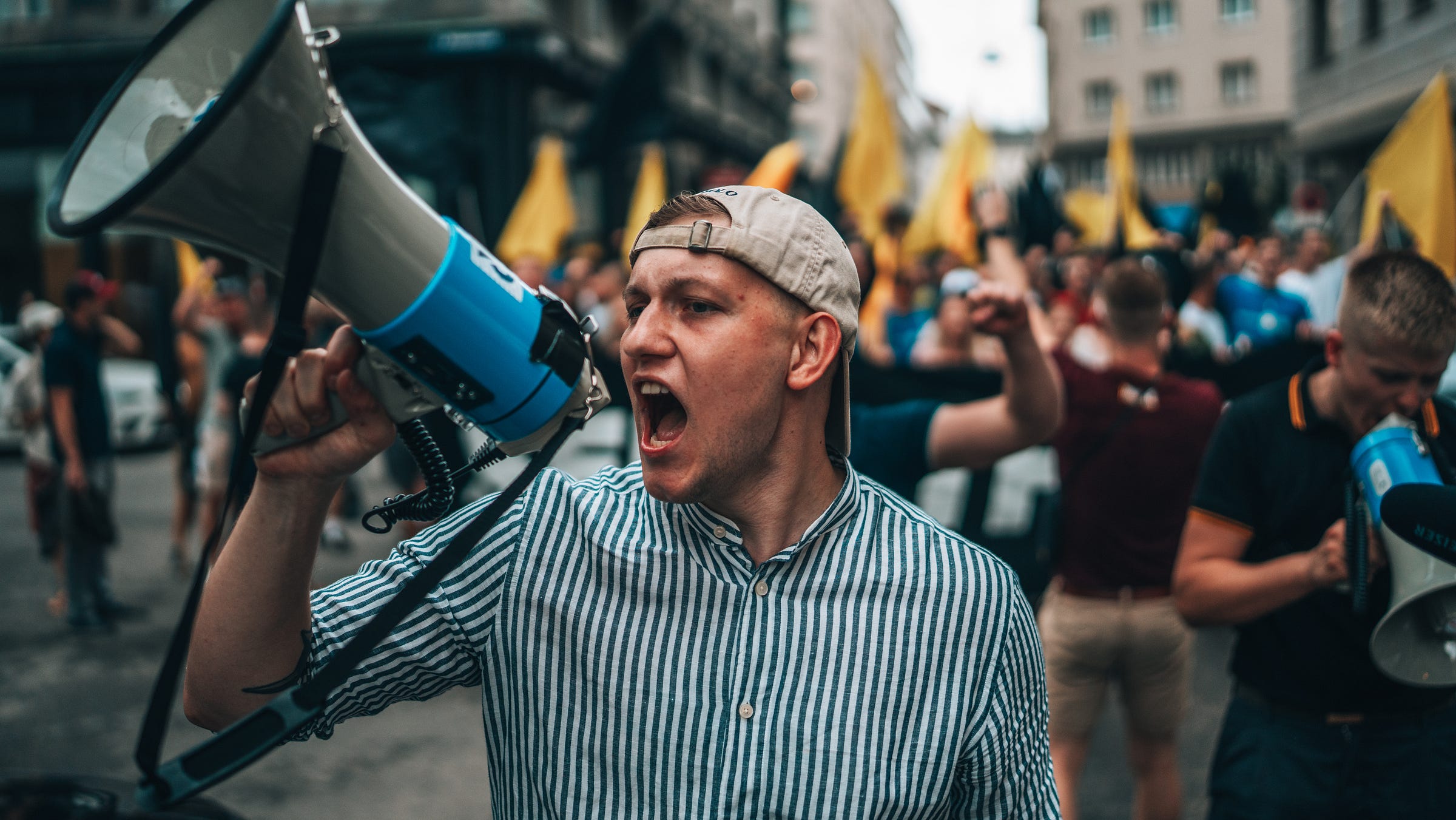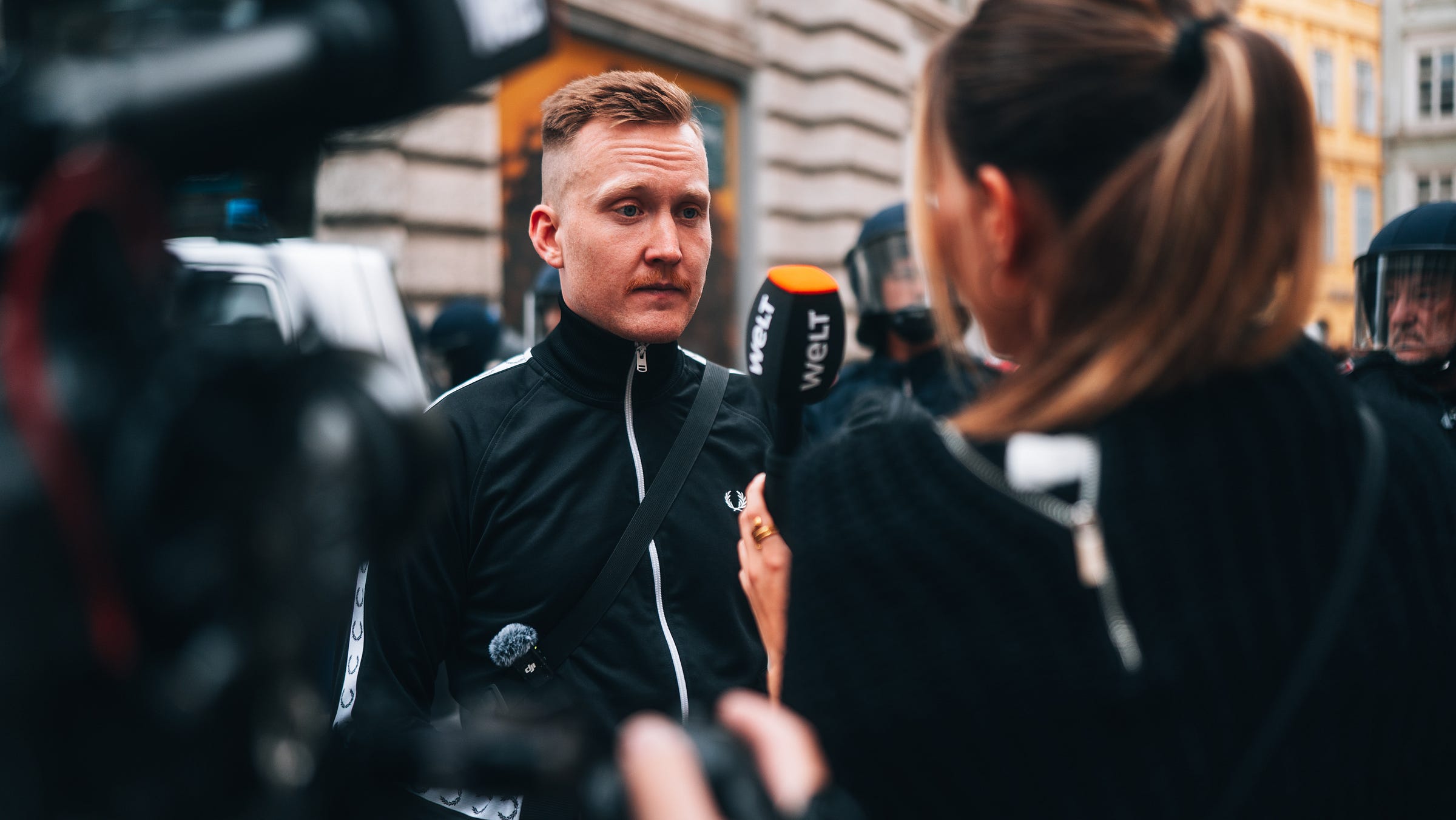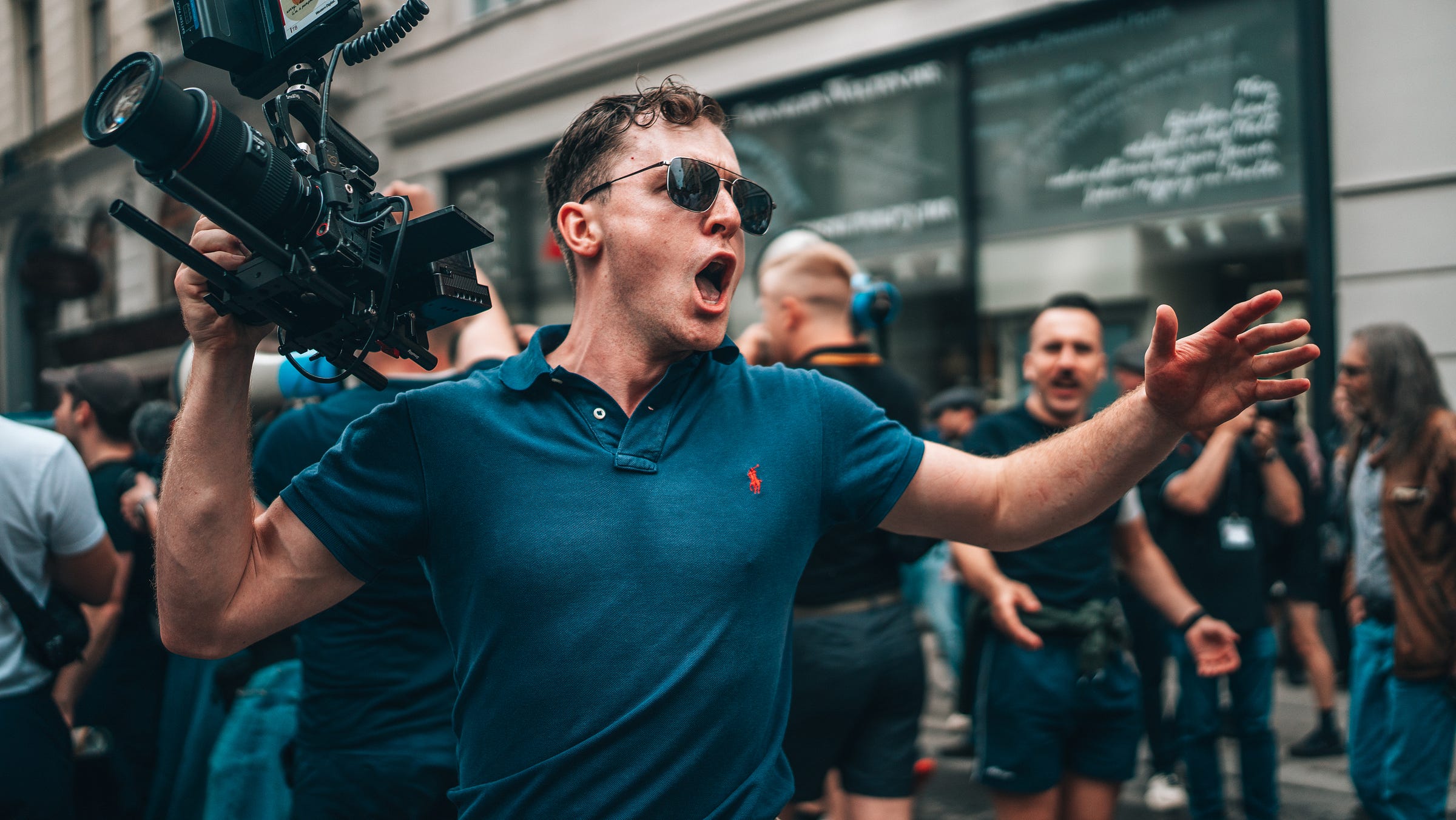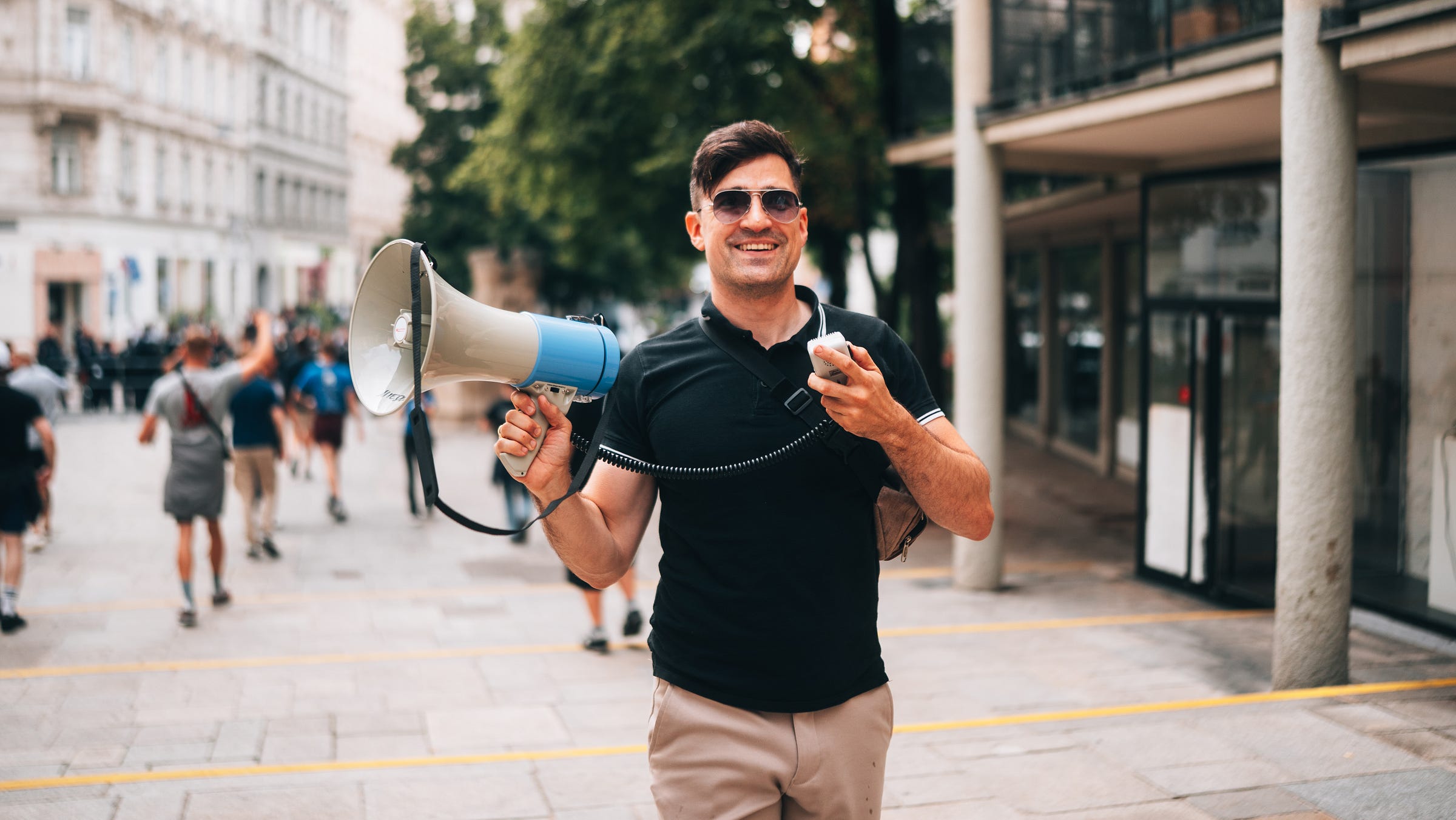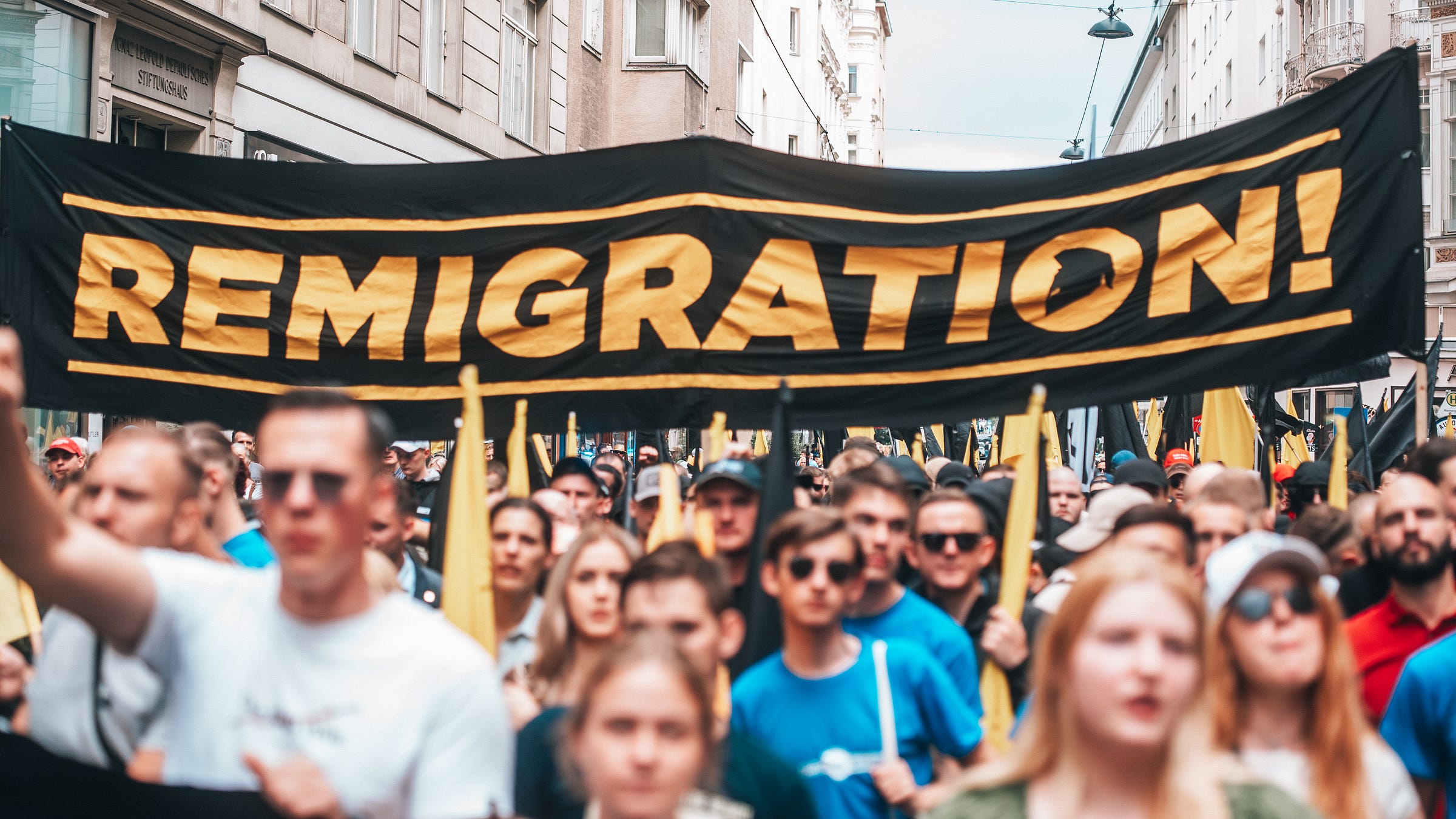Vienna—the capital of remigration ?
Interview : Martin Sellner and his friends answer our questions.
Under a heavy but tension-free sky, nearly 600 demonstrators gathered in Vienna around the Identitarian Movement. Coming from Austria, Germany, Brittany, and elsewhere, the participants marched through the heart of Vienna chanting, “Send them back.” The message was clear: Europe is claiming its right to historical continuity. This is no longer a national struggle, but a nascent European consciousness.
Far-left chaos: counter-demonstration
Faced with this disciplined march, anti-fascists called for the procession to be blocked. From early afternoon, insults, vulgarities, and other forms of violence were directed at the peaceful demonstrators. Left-wing YouTuber Marcant (150k subscribers) acknowledged that the demonstration was very well organized. In the confusion caused by police intervention against the most violent anti-fascists, three activists from the Breton group “An Tour Tan” and the Norman group “Les Normaux” managed to capture two anti-fascist banners. The contrast was striking: on one side, a calm and organized column; on the other, urban chaos inherited from years of media tolerance towards the far left.
Asymmetrical media coverage
The event received relatively extensive media coverage, especially in Austria and Germany. Several patriotic media outlets, such as AUF1, Info Direkt, Freilich, Breizh Info, and Ligne Droite, reported on the demonstration without demonizing it. But the mainstream German-language media took a very different approach. Some newspapers referred to a “neo-fascist demonstration,” accusing the organizers of spreading “hate speech.” The word “remigration,” which has become central to the right, is systematically presented as a racist concept. This rhetorical device is now well known and convinces only a minority of activist journalists and violent groups.
The key role of images : Filmkunstkollektiv
The presence of Filmkunstkollektiv, a German audiovisual collective that documents patriotic movements (AfD, FPÖ, Génération Identitaire, etc.), marked a turning point in the battle for images.
Professional, well-equipped, and effective, they offer a visual counter-narrative to media propaganda. They embody a new generation capable of competing with mainstream media structures.
To go further and understand the vision that drives the participants, we gave a voice to the key figures of the European identity movement. Their comments, gathered on the spot in Vienna, shed light on the deep motivations behind the mobilization.
Yannick Wagemann is a 23-year-old student from Vienna. He is the leader of the Austrian identitarian movement and the organizer of the demonstration in Vienna.
What message do you want to send from Vienna ?
“Our message, which is once again a slogan in English this year, clearly and succinctly expresses what Europe needs, namely the return of people from other cultures who have arrived in Europe in recent years and decades.
”Send them back" is Vienna's message to all European elites! “
What exactly do you mean by ”remigration"?
Remigration describes a comprehensive political program that aims to reverse the migration movements of recent years and decades through various measures. In addition to deporting illegal immigrants, it includes, for example, measures to increase assimilation pressure in order to encourage people from other cultures who do not wish to assimilate to return home.
Maximilian Märkl is the spokesperson for the German identity movement.
Why are you in Vienna ?
We are here to represent the youth of Europe who are not prepared to abandon their homeland. Millions of people support us on the internet. But repression prevents everyone from showing their face. We are here for everyone and we are flying our colors in Vienna's beautiful 1st district. In doing so, we are sending a clear message: “Send them back!” We want our homeland back!
Germany is experiencing very negative immigration. What consequences do you think this has for German society?
The consequences are now so serious that no one can ignore them anymore. In all major German cities, the effects of foreign overpopulation are being felt in city centers. There is hardly a village left without an asylum center. The consequences are disastrous, both culturally and organizationally. Whether it's social welfare, the healthcare system, or housing, the German population is feeling the effects every day. But at the same time, a strong youth is emerging that, unlike many older people, is no longer willing to look away. And it is this struggle against challenges that makes the younger generation strong.
Manuel Corchia is an artist and video maker. He has also been politically active for almost seven years. He is co-director of the Swiss movement Junge Tat.
Why are you coming to Vienna? What is your message?
Switzerland is one of the oldest countries in Europe and has always stood for independence and a unique ethnocultural identity. It is precisely these foundations that we want to preserve and defend. But now we too have been hit hard by migration. It poses an existential threat to the Swiss people. Our message to Europe is as old as it is valid:
Fight together, live independently.
This is the only way to preserve the peoples of Europe and lead them to their optimum.
Switzerland is often perceived as a stable and prosperous country. Why do you think remigration should be a political priority there?
In the generation of “Swiss” under the age of 15, the proportion of migrants is already close to 58%. This majority comes mainly from non-European groups with high birth rates. Replacement migration is therefore having a profound impact and fundamentally changing our country. That is why remigration is an absolute political priority for us. For what would Switzerland be without the Swiss? What would Europe be without Europeans ?
Martin Sellner is an identitarian intellectual. He co-founded the identity movement in Austria in 2012. He is the most demonized activist in Europe and has naturally emerged as the leader of the European identity movement.
Can you tell us why you are here?
For more than a decade, I have been working to create a new metapolitical patriotic force in Europe. I am fighting for remigration and, above all, for freedom of speech. I believe it is our duty to resist the demographic replacement of our people and the Islamization of our continent. I am proud to be one of the most censored activists because of my commitment.
What is your strategic vision for Europe?
My vision is simple: the ethnocultural continuity of Europe must be ensured. Not as a living museum, but as a proud and strong global player, rooted in its peoples and traditions. Strategically, we are pursuing a metapolitical approach: through activism, both on the streets and on the internet, we want to change the discourse, shift the Overton window, and prepare for real, profound political change.
There is a huge propaganda campaign against you. You are accused of being unconstitutional. However, reading your book, we find a more balanced message. How would you summarize your vision?
I am absolutely not the caricature that the media portrays. We are neither extremists nor driven by hatred. Our demands are reasonable and measured, our means are nonviolent. In a world that celebrates all identities except European identity, we simply want to enjoy the same right as all other peoples: we want to remain who we are. As ethnopluralists, we respect all cultures and identities, and we love and preserve our own.
Do you think Trump's United States has a positive role to play for Europe?
Trump's presidency has marked a break in the globalist matrix. He has shown that even a political revolution within a system is possible. What won him the election was his pro-border stance and his anti-globalist and anti-woke messages. He now uses the term “remigration.” It remains to be seen whether he will deliver on his promises in a way that satisfies his supporters at the end of his term. What is already clear is the positive reinforcement of our culture war. But Europe must chart its own course. America will not and cannot save us. That said, alliances and exchanges with dissident networks in the US are beneficial. We can learn from their culture and their information war, especially their use of memes. Despite the differences, there is an affinity between our mindsets.
You often talk about Europe, not as a mere market, but as a civilization. What do you want to build with those who are here today?
The real Europe is not represented by the Brussels elite. It is not just about GDP figures, contracts, or carbon targets. Europe is its peoples. The peoples who built the cathedrals and castles, who imagined the myths and languages.
The future we want to build is truly European. An alliance of peoples and nations that retain their differences but remain united in important moments.
The success of this event, despite attempts at intimidation and media caricatures, confirms one thing: remigration is making a dramatic entry into mainstream discourse. It is becoming a legitimate political horizon, supported by a deeply rooted European youth. This march in Vienna is a starting point. Public opinion, confronted with the failures of assimilation, rising violence, and declining freedoms, is beginning to listen to what the left calls “fascism.”
Voxeuropa Herald is an initiative that shares the voices shaping Europe today: elected officials, essayists, philosophers, activists, artists and influencers. These portraits are collective responses to the crises shaking our Europe. Faced with the major upheavals of our times, Voxeuropa Herald gives a voice to those who, throughout Europe, share solutions and visions for the future. The message is clear : European realities call for European responses.
🔹 Follow Voxeuropa on : X | Instagram | Telegram | TikTok | Paypal
🔹 Share, comment, and debate — ideas gain power when they circulate.




